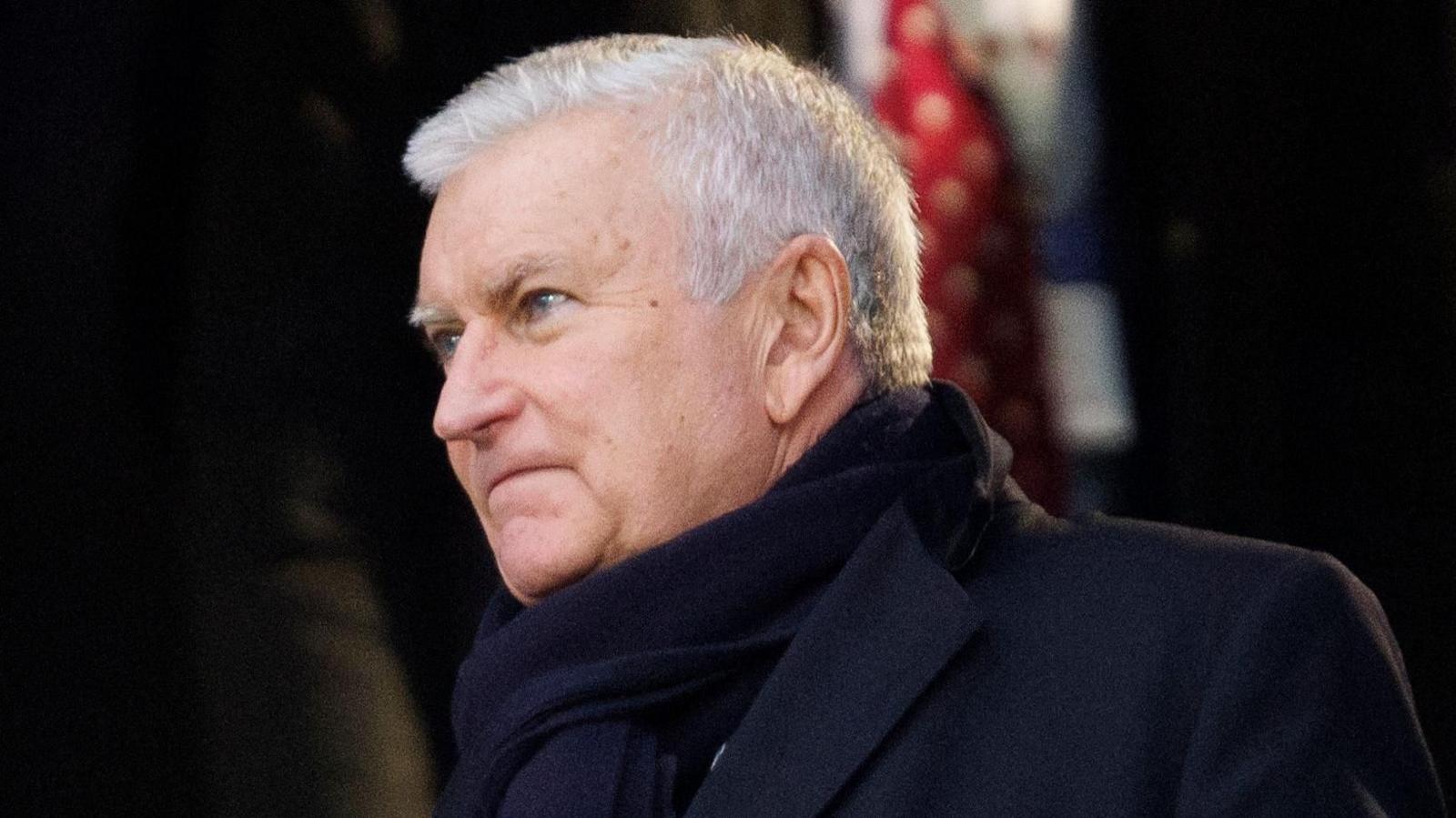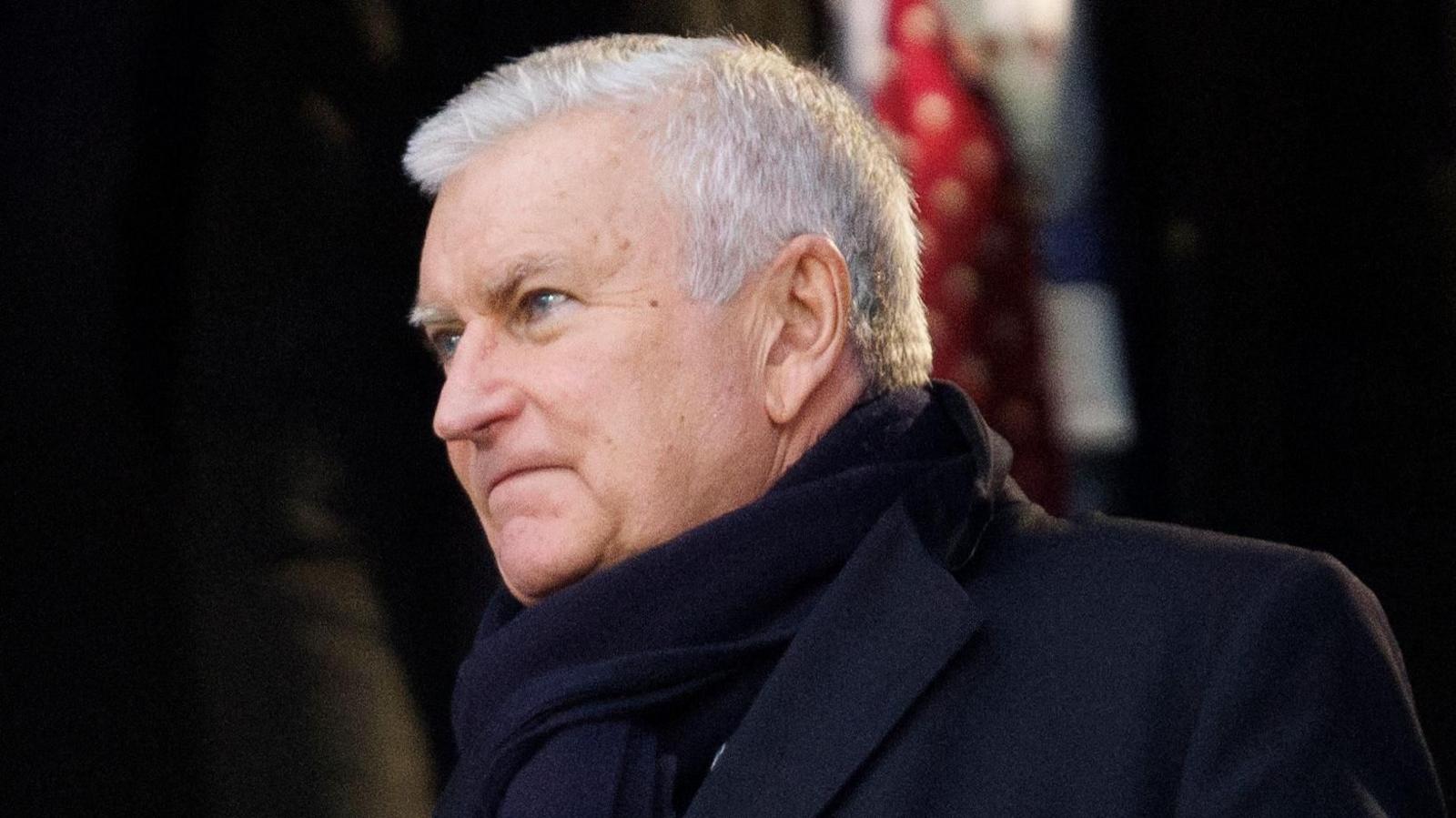The Rugby Football Union is in a «strong position» but «not out of the woods» after it announced a 10-year high revenue of £228m in its latest financial accounts, says chief executive Bill Sweeney.
The latest RFU annual report reveals the second-highest revenues in history, with losses down from £42m in 2023-24 to £2m.
While the union’s long-term future at Twickenham remains uncertain, Sweeney believes the game is emerging strongly from a difficult few years.
«We have still got financial challenges, but we are in a good place,» he told BBC Sport.
«We sit here today feeling things have moved on well and we are in a really strong position going forward.
«We are not completely out of the woods – but we have no debt, a strong balance sheet, and generating a lot of revenue as well.»
The heavy losses in the 2023-24 accounts sparked a furore which threatened Sweeney’s position, especially given his £1.1m remuneration.
Sweeney was forced to fight for his position at a special general meeting in January, where he survived a vote of no confidence from the game.
The latest accounts, which cover June 2024 to June 2025, is the first year of a four-year cycle, with the improved financial outlook helped considerably by seven home men’s internationals in that period.
Conversely, part of the losses in 2023-24 can be attributed to the high costs of preparing for the 2023 Rugby World Cup, coupled with only five games at Twickenham.
Current revenues are at a 10-year high, second only to the home men’s Rugby World Cup year in 2015-16.
«In this first year of our new four-year cycle, a positive start is key as we know the fourth year always brings substantial losses,» said Francesca Pierce, RFU chief financial officer.
«This is even more important, given rising cost pressures and the wider consumer backdrop.»
The RFU says it is in dialogue with World Rugby to review the revenue model in men’s Rugby World Cup years, which they call «a recognised challenge across the game».
Meanwhile the RFU report outlines how the sport continues to face financial challenges, such as inflationary pressures and a heavy reliance on matchday revenues.
-
Captivating but confusing – what state is international rugby in?
-
14 hours ago
-
-
The Autumn Debrief
-
Three Boks, four Englishmen – who makes Opta’s team of the autumn?
-
20 hours ago
-
‘Plan A’ to stay at Twickenham
The redevelopment of Allianz Stadium is also high on the agenda as «an essential long-term project», the cost of which is estimated to exceed £650m.
However the redevelopment is dependent on the stadium being granted permission by the local council to stage 15 non-rugby events each year, which has up until now proved a sticking point.
Sweeney says being able to stage this number of events is non-negotiable and the RFU is drawing up contingency plans to move away from Twickenham in a worst-case scenario.
«Compared to some of the other stadiums in the country, we are the most under-utilised,» he explained.
«Wembley has 55 events, with 25 football. At Tottenham they have 34 on top of football. We have three [on top of rugby].
«To make the investment meaningful, we have to have more non-rugby events here.
«Our plan A is to stay here, we contribute a huge amount to the local economy – in excess of £90m – and we contribute a much bigger figure than that to the Greater London economy.
«We want to stay here, they’ve told us they want us to stay. But we need those extra 15 events.
«We have a number of fall-back positions – we would probably have to relocate – but I would stress our focus is on Plan A.»
Related topics
- Rugby Union
- English Rugby
-
RFU chief Sweeney survives no-confidence vote
-
27 March

-

















